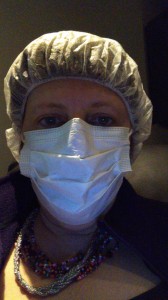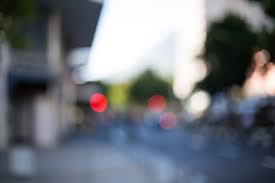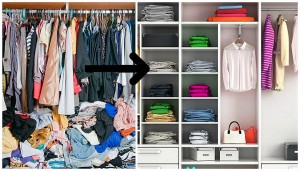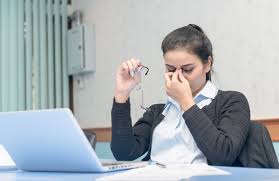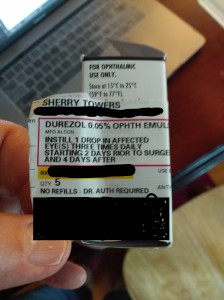In this post I’ll describe my PRK eye surgery experience and recovery. I decided to post my story because leading up to my surgery I read many rosy stories online of fairly quick recovery timelines (ie; people being able to drive a day or few after surgery), and my recovery definitely does not fit that mould. It doesn’t mean that I am unhappy with my decision to get surgery, but I think it’s good to be aware that PRK can potentially come with a fairly extended recovery period, and people considering it should conservatively book at least a week off of work, and expect their vision to be highly variable for several weeks.
In June, 2020, I had photorefractive keratectomy (PRK) laser surgery to correct my very poor vision (-5.5 in one eye, and -5.25 in the other with significant astigmatism in both… this put me in the lowest 10th percentile for vision in my age group. I also apparently had an unusually high amount of spherical aberration in both eyes, something glasses cannot correct for, but laser surgery can). I had been thinking about having laser surgery for years, but finally decided to take the leap this year because my work-related travel has recently been much lighter than it has been in many years (ie; non-existent during the pandemic) and there would be very few conflicts with my work schedule. I have several family members who have had laser eye surgery, and they have loved the results.
I discussed my options with my optometrist, and he suggested a couple of excellent surgery centres in a nearby city. One was a chain outfit (TLC) with centres across Canada and the US, that uses a data-science approach to optimise outcomes. Not only overall outcomes across the country, but also tuned for the local climatic conditions (humidity and air pressure can affect the laser performance, so they tune the laser in each individual city to optimise overall outcomes in that city). As a data scientist, this approach has appeal to me.
The other centre he suggested had been one of the first lasik centres and had the longest experience in doing lasik of any centre in my area of the country.
I made appointments with both, but the chain outfit was the first I saw, and I ended up feeling so comfortable going with them that I cancelled the appointment with the other centre. In my consultation with the chain centre, they did a thorough eye exam, whereupon they told me I was a poor candidate for lasik because my corneas were too thin, but I was an excellent candidate for a procedure called PRK. I initially felt really disappointed, because I had my heart set on lasik, but upon reading more about PRK I learned that the outcomes are as good as (if not even better than) lasik, and it has a better safety outcome because there is no corneal flap to tear, and the risk of chronic dry eye is much less. But (and this has turned out to be a big but) it has a longer recovery time. Lasik surgery requires cutting a tiny flap in the cornea, whereas PRK involves literally burning off the entire top surface of your eye to reshape it.
I read up online about other peoples’ PRK experiences, and their recovery stories didn’t seem bad at all (most talked about driving within one to a few days after surgery), so I booked my appointment for PRK surgery a couple of weeks later. Because I work so much on a computer, I decided to get what is known as “monovision”, where one eye is tuned for close/medium distance vision, and the other eye is tuned for far distance vision. If I had gone with both eyes being tuned for far distance vision, I would need glasses for working on the computer, and given that most of my time is spent working on the computer, that would make getting laser surgery to avoid glasses somewhat pointless. With monovision, your brain seamlessly switches between inputs from the eye most suited to the current distance you’re looking at. Or at least that’s the idea… some people apparently cannot get used to it.
Here’s my surgery and recovery timeline story…
Day -14 (two weeks before surgery)
I started reading everything I could about PRK, including studies in the academic literature. It turns out that taking Omega-3 supplements can significantly improve healing time. I bought some, and began taking a double dose daily leading up to the surgery, aiming to continue for at least three months after the surgery.
Vitamin C has also been found to be beneficial for avoiding PRK complications. I’ve been taking 1000mg of vitamin C per day for years though, so I didn’t feel it was necessary to take any more than that.
Day -2 (two days before surgery)
My surgeon prescribed three kinds of drops that were to be started two days before surgery, and be used until four days after. Prolensa, to be used once a day, and gatifloxacin and Durezol to be used three times a day. Two of these (the Durezol and the Prolensa) were expensive.
The Durezol drops felt like I was being stabbed in the eyeball. 0/10 do not recommend.
I also bought a pack of preservative-free methylcellulose eye drops (they come in a big box full of little individual tubes that you break off the end to use). I bought a box of 70 thinking that would be more than enough (but spoiler alert: you’ll need a lot more than that during the recovery period).
Day -1 (one day before surgery)
In the surgical instruction packet, there is the comment that patients should avoid wearing hair spray, perfume, lotions, or any kind of scented product. It didn’t say why. I did some research, and it turns out the reason is because volatile organic compounds (VOCs) in the air can interfere with the laser. In fact, lasers have been shown to be very sensitive VOC detectors. VOCs are what make perfumes, lotions, etc smell.
The day before the surgery I bought some unscented soap to use on my hair and body (unscented soap is somewhat hard to find, btw), and washed my clothes for the next day in unscented laundry detergent.
I also dug out one of our old pairs of ski goggles from the attic, and a pair of swim goggles. I have a long standing habit of rubbing my eyes at night (in fact, that’s usually how I wake up in the morning… rubbing my eyes), and I figured that the ski goggles would help me not do that. The swim goggles would help with keeping water out of my eyes while I showered.
I used my prescribed eye drops on schedule.
Day 0 (surgery day!)
I used my prescribed eye drops on schedule.
My surgery was in the late afternoon. My husband drove me there, but he had to wait in the vehicle rather than inside because of the pandemic. He said he just took a nap.
I went inside, and they fitted me with a mask (the one I brought was cloth and not sufficient apparently), and a surgical cap to keep my hair out of the way.
Then they put in several different kinds of drops, and gave me a tablet of valium to dissolve on my tongue. This is the first time I’d ever used valium. Things get kind of hazy in my memory after the valium, because apparently it works pretty well….
After leaving me to sit for some period of time in a dim room (I really have no idea how long), they led me into the room with the laser. They made me comfortable on the bed, and then did the procedure. The main thing I remember was the horrible smell of burning hair/skin (actually, burning cornea… my clothes reeked afterwards). I also remember chatting enthusiastically with/(babbling enthusiastically at) the surgeon about VOCs and lasers, and the fact that I took laser physics during my undergrad degree. I really don’t remember what, if anything, he said in return.
I also really don’t remember much about the end of the procedure. I do remember the assistant giving me a little kit bag with dark sunglasses, night shields, and drops, etc, and leading me out to the vehicle. I barely remember anything about the drive back… I think I slept. And once I got home I went to bed for a nap.
Valium. 10/10 recommend.
My husband made burritos for dinner, and after dinner I went to bed again. The night shields the surgeon’s office gave me had to be taped on, and the tape gets stuck in your hair… so I went with the ski goggles, and they have turned out to be an excellent idea. They have completely prevented me from rubbing my eyes, and they are relatively comfortable to sleep in.
My vision was super blurry on day 0, but I wasn’t in any real discomfort. I’ve noticed in many other peoples’ recovery stories they talked about having great vision right after the procedure. That didn’t happen for me at all.
Day 1 of recovery
I had to wake up several times in the night to put methylcellulose drops in my eyes. I woke up in the morning still under the influence from the valium (it has a nearly two day half life, so I was still partying well into day 1).
I used my prescription eyedrops on schedule.
My vision was super blurry, with significant halos and haze. I couldn’t see anything near or far because it was like looking through a sheet of waxed paper. But I wasn’t in any real discomfort.
All my post-surgery follow-ups are with my local optometrist. He was out that day, so I saw his partner for my one day checkup. He popped up the eye chart and asked me what line I could read. I could barely tell there was an eye chart there let alone read any of the lines. He scrolled up to even bigger letters. Still nothing. Even bigger letters…
“I think that’s an E?”.
Needless to say, my vision was not 20/20 on day 1.
I napped a couple of times during that first day, and also listened to movies I’d already seen before, so I knew already what was going on on the screen.
Day 2
I had significant discomfort the night before, and woke up many times to put in rewetting drops. Around 4am I finally took one of the tylenol 3’s the surgeon had prescribed. I managed to sleep for several more hours.
I woke up in the morning with the valium worn off, and extremely blurry vision (still like looking through waxed paper). Most of the PRK recovery stories I had read online talked about how their vision got better day by day, with several people saying that they were driving themselves by day 2 or 3. The thought of me driving at this point was laughable. My vision was so bad, it was actually kind of distressing. The only reason I was able to marginally function at all was because I was in the familiar environment of my house where I knew where everything was.
I used my prescription eye drops on schedule.
Virtually my entire work life involves my computer, but I couldn’t even read email at this point, even with my screen zoomed in 400%. I had warned my colleagues I would be out of commission probably “several days to maybe a week”, so luckily no one important was trying to reach me anyway.
Leading up to the surgery, I had decided a good activity to occupy myself might be to clean out closets and drawers because that didn’t require any kind of visual acuity, so that is how I amused myself for much of day 2, along with trying to take a couple of naps.
Day 3
The night before I still had to wake up several times to put in rewetting drops, but I was in significantly less discomfort. Except for that second night, discomfort has been pretty minimal.
I continued taking my prescription eye drops on schedule.
Vision was still extremely blurry, both near and far, and the difficulties seeing my laptop were aggravating.. my entire work life is centred on my laptop, and inability to read anything on it was very frustrating. Zooming in and inverting the colours helped a little bit. I also had significant haloing and starburst effects when seeing the sun shine off of car windows or metal.
My husband and I went shopping, and I had to get him to read the fine print on things like expiration dates. Other than that, I could see packaging well enough to pick out familiar products.
I worked more on cleaning out closets, and tried taking a nap.
Day 4
As usual I had to wake up several times in the night to put in rewetting drops. But again, not much discomfort.
I continued taking my prescription eye drops on schedule (my last day for the drops). Edit: I found out, two weeks later, that I was supposed to have kept on using the Durezol eye drops for a month… my prescription from the pharmacy was mis-labelled, and it took two weeks for my optometrist and the surgery centre to catch the mistake).
In the morning, I noticed that while my distance vision was still extremely blurry, I was beginning to be able to read the print in books and magazines. But not the computer… there is something about the light of the computer that made print on it look hazy.
I continued Marie Kondo-ing our closets.
There literally was nothing left at this point in the closets that didn’t spark joy.
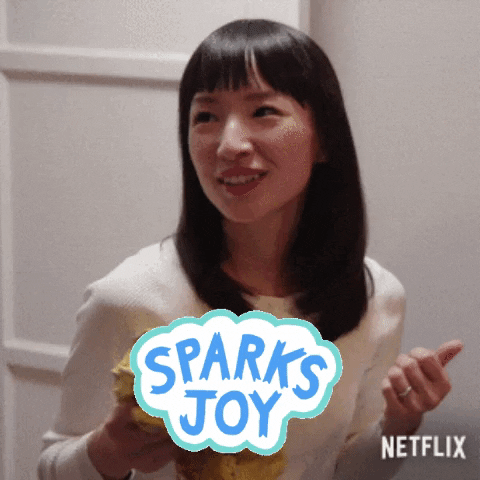
Day 5
Today was the day to get my bandage contacts out!
My distance vision was still super blurry, and while I could read magazine print, it was still blurry and hazy. My optometrist did an eye exam, mapping my current eye contours. He then took my bandage contacts out (which turned out to be a straightforward and painless procedure). He took a careful look at my corneas, and said that they were healing very well, and looked like they were at the three-week mark instead of the five-day mark.
I asked him why my vision was still so super blurry, even though I had read all these PRK recovery blogs where people were talking about driving within a day or few after their surgery. He said that those people almost certainly did not have an extreme vision correction, and that because of my bad astigmatism a significant amount had to be shaved off my corneas. The blurry vision I was experiencing was completely normal for the type of correction I’d had, and I’d likely continue to have blurry vision for a few more weeks before it really started to clear up.
So, I guess this is one reason I’m writing about my experience; be aware that everyone has their own timeline for recovery, and that the timelines you read for some peoples’ recovery may be overly optimistic for the average. If you are considering PRK, book at least a week off of work, and don’t plan on driving for at least one to two weeks.
We did the eye chart, and I was having problems seeing anything on the distance chart because of the blurriness, but interestingly my distance eyesight was somewhat better using both eyes rather than just the eye corrected for distance vision (my right eye). Somehow my brain was incorporating the crappy distance info coming from my left eye to help my right eye out, which is kind of cool (with both eyes my vision was 20/60). With the near distance eye chart I was able to read the smallest lines of text (with frequent blinking to clear the haze).
I asked my optometrist why my near vision was recovering faster than my distance vision, and he said the astigmatism was worse in my right eye, and because more had to be shaved off of it, it will take a little longer to recover. He told me that I was recovering very well, and he was pleased with my progress so far.
Before I left, my optometrist said that the surgery centre had said in their notes that I was an excellent patient. I laughed and said that he probably said that to everyone, and he said no no… they had made a note about me chatting with the surgeon about the laser.
Lol… that would be me, riding high on valium, babbling about VOCs and lasers.
Without the bandage contacts in my eyes felt more scratchy than they had before, so on the way home from the optometrist my husband and I stopped at the pharmacy to buy more methlycellulose drops (I should have bought stock in the company that makes them before my surgery).
Once back in the car, I cracked a vial and put the drops in, and suddenly, just for a second, my distance vision was sharp and clear. It was startling, but even though the haze and blur returned almost immediately, it at least was a sign that things will get better.
That evening at home I was able to read email, and my laptop is getting noticeably easier to see (although I was still zoomed way in, had to invert the colours, make my cursor much larger, etc).
Day 6
I began this post about my recovery the morning of day 6. But now, after writing for over an hour, my vision has become extremely blurry and my eyes are scratchy. I have clearly over-done it, so I’ll stop here for the moment, and carry on later.
(Later)
My near vision was in and out all day, sometimes very crisp, but then suddenly going to very blurry in a way that only taking a bit of a break and closing my eyes for a bit would fix. My distance vision was still terrible. My eyes also felt rougher throughout the day, which apparently is to be expected when the contact bandages come out. It apparently takes several more days for the new epithelium layer to finish healing and smooth over. But it probably doesn’t help that I overdid it on the laptop, which involves a lot less frequent blinking than is likely heathy at the moment.
Day 7
I woke up several times during the night, perhaps out of habit by this point. But I didn’t feel the need to actually put in drops because my eyes didn’t feel dry enough to warrant bumbling around in the dark looking for the little tubes.
Upon waking up in the morning, I noticed I could see the clock across the room more clearly than I had since the surgery. I peeked outside, and the trees in our yard are definitely looking like they have distinct leaves. Trees further away were still an amorphous green blur though.
Near vision clarity through the day was in and out, but when it was clear it was very clear. Distance vision is improving over what it was, but still nowhere near good enough to drive safely. As the day wore on my distance vision became increasingly blurry. I went for a long walk with my husband, and even though I was wearing a hat and sunglasses, the bright glare from the sun really started to get to me. It was a relief to get back in the house into a room with the blinds down.
Day 12
Today was the day for another follow up with my optometrist. My corneal healing is still apparently progressing very well. Over the past several days my distance vision has slowly improved somewhat, although not nearly enough to drive safely. The vision chart says I am seeing 20/30 today when using both eyes (worse when just using the distance-only eye). However, my far distance visual acuity literally changes blink by blink, so 20/30 was achieved by my “best blink” effort when staring at the chart. My average distance visual acuity is much worse.
My near distance is good enough that I can now work on my laptop for several hours at a time (zoomed in and with the colours inverted). However, I get eye strain easily and a few times a day my near vision will abruptly go very blurry and stay that way unless I just take a break and rest my eyes for a while. There is literally nothing I can do get them to focus when that happens, and even wearing +1 readers does not help. My optometrist says that after significant correction, the brain has to get used to the new vision (especially monovision where one eye is responsible for all the near vision), and at some point there is just overload if you over-do it.
I am going through at least a couple of dozen methycellulose mini-droppers each day to manage the scratchy feeling in my eyes. I still wear my old ski goggles to bed to keep myself from my bad habit of rubbing my eyes (it works great for that), but I’m no longer waking up in the middle of the night to put drops in.
Day 17
I just got a phone call from the centre that did my surgery, because they were looking at the notes sent to them from my optometrist that said “patient still using rewetting drops as needed”. They asked if I was also still taking the steroid drops (Durezol). I said, “No, the instructions on the bottle said to stop four days after the surgery”. She said, “but there are post-surgery instructions in the kit we gave you that told you that you needed to take them for a month after surgery”.
I don’t recall any note like that (remember, I was flying high on valium at the time), but digging around in the kit sure enough revealed a note at the bottom with those instructions.
Anyway, I am annoyed that the instructions on the bottle that came from the pharmacy weren’t correct, and I’m annoyed that the instructions from the centre were not given to me at a time when I wasn’t completely fried on valium.
So now I am back on the Durezol drops (which feel like being stabbed in the eyeball) 3x a day for three days, 2x a day for two weeks, and 1x a day for another two weeks. Hopefully this mixup hasn’t screwed up my eye recovery.
In other recovery-related news, I finally feel confident enough to drive, but my far vision clarity is still worse than my near vision clarity. My near vision clarity can be remarkably crisp. Better than what I had before, in fact.
I did some sewing over the weekend, and while threading needles I did miss the loss of my ultra-microscopic close vision that I used to have (because I was so severely myopic), but a pair of +1 readers easily compensated for the loss.
Day 26
Today I had a check-up with my optometrist. My far vision is now 20/20 but it is still hazy. While it is good enough for driving, the haze/blur still makes driving not-enjoyable. In fact, the Durezol drops appear to have made my far distance vision even worse than it had been just before I started them again. But apparently this is a common side effect of that medication, and nothing to worry about.
In contrast, the past couple of days my near distance vision has been super crisp early in the day. So much better than it had been before with glasses in fact, that sometimes I find myself pausing in wonder to just take in the detail of what I can see. But by late afternoon things tend to degrade as my eyes get tired.
My optometrist was very apologetic about the Durezol mix-up (although it was not his fault). Apparently the surgery centre had sent him the after-care instructions for lasik surgery, not PRK (with lasik you stop the Durezol four days after). Which he thought was odd. He said I shouldn’t worry about the two weeks I wasn’t taking the drops… my recovery will just be a bit more extended.
He did a full eye exam. My near distance eye when corrected for far distance is very good; 20/10. The best I can do with my far distance eye (even with the correction machine the optometrist uses) is still a somewhat hazy 20/20 (the machine didn’t correct much). Again, my optometrist re-iterated that the right eye (the far distance eye) had a very significant correction, and there is still inflammation from that, and it just needs time to heal.
In other news, I am still wearing the ski goggles when I sleep, because the one night I didn’t wear them I woke up rubbing my eyes (which is a big no-no). Also, old habits seem to die hard… I still find myself feeling around for my glasses in the morning, and every time I go to put in eye drops I make a motion to take off my glasses.
Two months post-surgery
I had my two-month postop appointment today, and the haze in my right eye (the one corrected for distance) has almost completely cleared up. After several more weeks of continuing to take them, I am no longer on the stabby steroid eyedrops (Durezol). My distance vision has slowly improved over the past month, and is now at least 20/15 (ie; better than 20/20). However, because I had monovision surgery, my depth perception is lacking, and I’m not a big fan of driving because turning left onto a busy street can be somewhat nerve wracking. In that sense, my distance vision is not as “whole” as it was before, even though the absolute best I ever achieved before with glasses was a somewhat blurry 20/20.
Next month I have my three-month postop appointment, and if my distance vision is stable from what it was today, I will get a prescription for driving glasses to correct my left eye (the near distance eye) such that my depth perception will be fully restored. Today the optometrist used his little clicky-clicky rotating eyeglasses machine to show me what that would look like, and my distance vision will easily be at least 20/10 once I get the glasses. It was unbelievable how good my distance vision was with that eye corrected as well.
I continue to be extremely happy with my near distance vision.
And I no longer wear the ski googles to bed.

